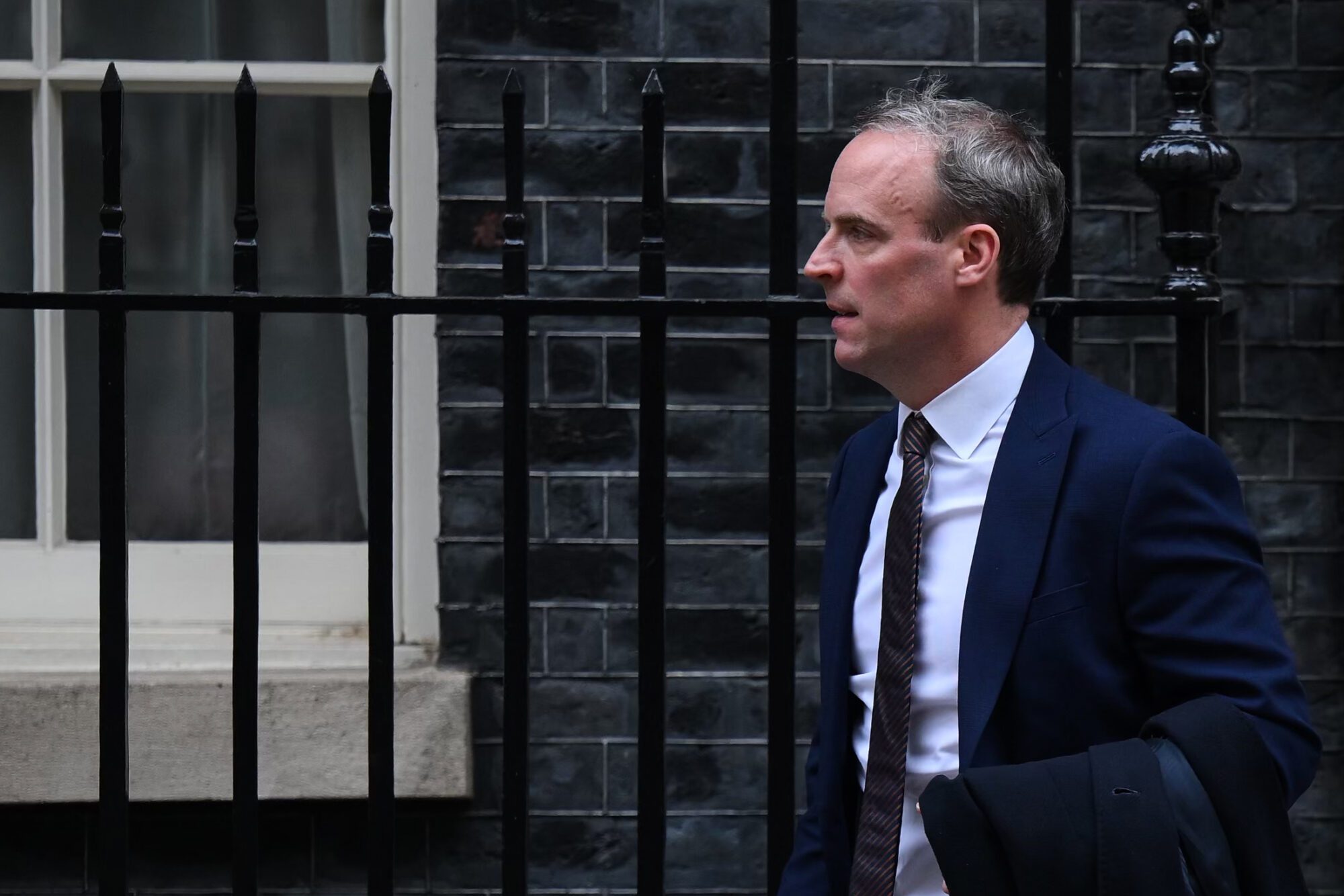
Britain’s Justice Secretary and Deputy Prime Minister Dominic Raab leaves Number 10 Downing Street after the weekly cabinet meeting in London on January 31st, 2023.
Daniel Leal / AFP
Modern British politics is adding one more high-level exit to an already impressive list.
The latest to hand in his notice is UK’s Deputy Prime Minister and Minister of Justice Dominic Raab, making the announcement on Friday, April 21st.
He is doing so following an investigation into allegations of having belittled and demeaned staff while in his current positions, and during previous stints in the governments of Theresa May and Boris Johnson.
In his resignation letter, which he shared on Twitter, Raab (49) wrote that while he was “duty bound to accept the outcome of the inquiry,” he noted that it confirmed only two instances of bullying, but dismissed the other six.
Even so, in his view, that outcome was still “flawed,” as it “set a dangerous precedent” by “setting the threshold for bullying so low.”
My resignation statement.👇 pic.twitter.com/DLjBfChlFq
— Dominic Raab (@DominicRaab) April 21, 2023
Raab had called for the inquiry himself, and swore to resign if it had “made any finding of bullying whatsoever.”
While attorney Adam Tolley, who headed the inquiry, stated that “bullying” was not a legal term, he found that after having consulted Raab’s accusers, he believed that Raab had “acted in a way which was intimidating,” was “unreasonably and persistently aggressive” and “introduced an unwarranted punitive element” to his leadership style.
“His conduct also involved an abuse or misuse of power in a way that undermines or humiliates,” Tolley wrote. Raab has denied these claims, as he had “behaved professionally at all times,” but apologized for any “unintended stress or offense” he might have caused.
Raab’s announcement comes one day after Prime Minister Rishi Sunak had received the 48-page report of the inquiry, after which he was expected to make the difficult decision of whether or not to sack Raab.
That decision having been made for him, Prime Minister Rishi Sunak issued a response, in which he said he accepted it “with great sadness.” He went on to say that he recognized “shortcomings” in the investigation, which had “negatively affected everyone involved.”
Meanwhile, Oliver Dowden and Alex Chalk have already been appointed as Raab’s successors. The former will assume the duties of Deputy Prime Minister, while the latter will take on the mantle as Minister of Justice.
For PM Sunak and his Tory Party, Raab’s unceremonious leaving marks yet another stain on his Conservative government’s already tarnished reputation.
Similar bullying claims forced Gavin Williamson, a member of Sunak’s cabinet, to resign in November, while in January this year, Sunak let go party chairman Nadhim Zahawi over tax irregularities.
Meanwhile, Sunak is facing scrutiny himself. This week, a parliamentary watchdog announced that it was looking into whether Sunak had properly disclosed his wife’s investments in a childcare firm. New government policy, announced in March, would be freeing up funds for the childcare sector, thereby directly benefiting that firm.
While Sunak was finance minister, Akshata Murty and, by extension her husband, had received criticism over her “non-domiciled” tax status, which allowed her not to pay tax in the UK on any earnings made abroad. Following the outcry, she gave up that status and said she would pay British tax on her global income.
The pooled wealth of Sunak and his wife, daughter of one of the founders of Indian IT giant Infosys, rank them among the UK’s wealthiest, outdoing even King Charles III.
